- Home
- B. V. Larson
Battle Station sf-5 Page 15
Battle Station sf-5 Read online
Page 15
Finally, I turned and looked toward the idle factory itself. “We’ve got plenty of steel, at least. Let’s build something.”
This time, with Marvin’s help translating my instructions, I designed something more useful than a massive block of steel. I didn’t have time to make a new tank, of course. But I figured we could use a structure, a battlement of some kind that could not be dug under and yet would provide cover from incoming fire. Simple geometric blocks and flat planes of metal. Something that would come in sectional pieces we could fit together. This machine should be able to generate structures like that very quickly. The factory was the only asset I had, so I was determined to do the best I could with it.
Within a few minutes I came up with a series of metal planks, about thirty feet long each. These would fit easily in the output tray, and two of my men in their exoskeletal suits could lift and place them. Each plank of steel was four inches thick-enough to stop a laser bolt. I would have loved to have a barrel of constructive nanites to weld them together, but wishing didn’t make it happen. Instead, I ordered the steel planks to be made with holes drilled through at regular intervals. Then I ordered a large number of steel rods to be built at the same time.
In the end, the Macros almost gave me enough time to build my steel bunker. The men had the floor and the walls built, but not the roof or the second floor. I’d kept them busy, having them carry, place and connect the planks as the great machine rolled out every few seconds. It was like trying to keep up with a fast laser-printer. We almost couldn’t clear the output tray before the next sheet fell out of it. Along with each section of steel, a pile of clanking, rolling rods was produced. These would serve as pins to hold the steel planks together.
Another team was focused on assembly. They used their laser projectors like welders to melt the rods into place, and to cut vertical slits for firing through the walls. These slits would serve as loopholes for gunners to hide behind. Every few feet, a slit had been burned through. The cuts were ragged and black with charred metal. They were just wide enough to allow my men to poke their rifles through. I tried it, and was impressed by the reasonably broad field of fire.
“One thing sir,” Kwon asked as I set up a second floor. “How do we get inside?”
“Burn a hole in the roof,” I said.
Without a moment’s hesitation, he flew up there and began cutting a circular opening in the roof of the structure.
We didn’t finish the second floor, however, before the enemy interrupted our efforts. A shout went up from one of my marines who was on sentry duty on the far side of the factory. Almost immediately, my visor dimmed: someone was firing. I couldn’t tell which side had opened up first, and I didn’t much care.
“Everyone into the bunker! Sloan and Marvin, seal the hatches on the tank and man your cannons!”
I flew up with a swarm of my fellow marines and we landed on the roof of the bunker. The bunker looked like a three-quarters finished cube at this point. The top floor had a three-foot high wall around it, one plank high. The interior was sealed except for the loopholes.
“Is that entrance done yet?” I asked Kwon, shouting to be heard over the growing din of battle.
“Yes sir, I’m working on a second one now.”
“Well, jump down inside and burn your way out from down there.”
Kwon looked at me for a second. Then a laser bolt struck him in the back. An inch-deep, black hole had appeared and wisped with gray vapor, but I could tell it hadn’t made it all the way through.
“Ah, right!” he said, jumping down into the bunker.
“I want three men to stay up top here with me. Crouch and fire. Everyone else inside the cube. Take up a firing position and make your stand.”
Only one marine didn’t make it into the bunker. He caught a bolt in the back, but this one burned through the armor. He was just making the flying leap up on top of the bunker. The bolt caused him to tumble in midair. His repellers were still pushing him, and unfortunately, he was driven down into the dirt. Instead of making a graceful, powered leap up on top of our steel cube he shot down into the ground. He struggled to rise and storm of bolts caught him from every direction.
My immediate instinct was to leap out there and help him. But I knew that would make two casualties out of one. “Supporting fire, left flank!” I shouted. “We have a marine down, keep those Macros honest!”
The marine forced himself to all fours. Two more bolts struck his armor, and he sagged down again. I couldn’t take it anymore, and ran to the wall. He was down there, lying in the dirt.
“Fly up here, Marine!” I ordered. “Get one hand on this rail and I’ll pull you over the top.”
“My repellers aren’t operable, sir,” he said, his voice faint on my proximity radio channel.
“Okay, then stay flat on your face. We’ll keep them off you and get you inside when we can.”
Over the marine’s head, several of my men were firing steadily now, keeping the Macros ducking. The enemy was digging out there, working on some agenda of their own. Maybe they didn’t know my bunker had a solid steel floor. Others were poking their head-sections around the corner of the big factory. We fired at every machine the moment it showed itself. Macro workers were coming inside the dome in droves now. Most of these had laser mounts on them. I wasn’t sure where these reinforcements had come from, but it didn’t really matter.
Marvin and Sloan in the tank kept the enemy at bay on their side of the factory, and we did the same from our bunker. I realized now, however, they were pouring in on the far side of the factory, a blind spot for all our shooters. They were massing up behind the factory and trying to work around us.
I grimaced as the marine below me took another hit. He wasn’t going to last long down there. It was odd, seeing a man helpless and dying so close to me. He was only ten feet away, but he was hurt and on the wrong side of my new wall. It might as well have been a million miles.
Then I noticed a glowing region of heat near the marine. “What the hell is that?” I asked over the command channel. “Someone with a better angle give me a report. Are the Macros burning a hole in our bunker?”
“No, sir,” Kwon said. “It’s me.”
I gritted my teeth. In between words, I fired out through my loophole. The Macros fired back, but they were exposed while I was a hard target behind my steel planks. They were forced to retreat. “What the hell are you doing, Kwon?”
“There we go, got him,” Kwon said.
I took a second to look down. A huge arm lashed out, grabbed the marine by the projector cable and dragged him up against the bunker. The man appeared to have lost consciousness. He banged limply against the bottom of the cube.
“Hole is a bit small,” Kwon said.
I shook my head. “I hope we don’t get more unwanted guests coming through that way.”
“Macros are too big to fit, sir. In fact, Carlson is almost too big. No, I have him now.”
I paused in my measured firing to watch Carlson’s legs slide away out of sight and into the bunker. “If we all die due to your little stunt, I’m busting you to Corporal, Kwon.”
“That’s okay, sir,” he said, “as long as I still get to kill machines.”
I laughed, because I knew he was serious.
— 19
The Macros kept up a steady rain of fire, and right before they made their next move, I suspected a trick. There were just too many with lasers, not enough of the models with cutlery. This didn’t match with the crowd I’d seen outside. Either they’d elected to only send in laser-armed workers, or they’d found a way to retool them all, or “Sir, look at the tank!”
Moving in a crouch, I duck-walked to the opposite side of the bunker and looked. Up until now, this side of the bunker had been the quietest flank throughout the battle, as the tank was covering this sector. I hadn’t really been worried about trouble from this direction. The Macros themselves had quickly learned to avoid the tank. It was the least populated region of our domed
-in little world. My biggest worry had been the possibility Sloan would screw up and nail our bunker with one of those big, swiveling cannons.
I was stunned at what I saw. When I peered through the loophole, I’d expected to see a dozen macros swarming over the hull of the tank-but what I did see surprised me much more than that. “What in the living-” I began, then broke off. “Where did it go?”
“It sank, sir,” said the man who panted beside me. He leaned against the outer wall with his shoulder and pointed to where the tank had been.
There was indeed a big hole out there, and a billowing cloud of dust. I opened a general channel. “Sloan? Marvin? Can you hear me?”
I heard something in response, but nothing I would call words. More like a squawk or two.
“If you can hear me, sit tight. Do not attempt to exit your vehicle. Do not fire your cannons. We’ll come dig you out when we can.”
I caught a final chirrup of radio, then a sizzling sound. After that, nothing. Still, I had hope. After all, Marvin and Sloan were both pretty close to unkillable. I hoped that neither of them had finally run out of luck.
I felt something odd a moment later. It was a shifting sensation, under my boots. It was slight, but it was undeniable. I put together two things at once in my head. The sunken tank, and the wobbling under my feet.
“They are digging under us!” I roared. “Kwon, get everyone braced for a fall!”
“A fall, sir?” he asked, confused.
That was all the time they gave us. Fortunately, our bunker didn’t just sink into a vast hole and vanish. Instead, the northern corner sagged into the dust by itself. It groaned and creaked, but the steel welds and rods held. I knew this bunker wasn’t real: it was a house of steel planks, like glued-together playing cards. There was no concrete, rebar or solid construction of any kind to keep it together. We’d thrown the shelter together in about an hour, and it showed. Still, it had held together so far.
“They are going to suck us underground,” Kwon said, suddenly figuring it out. “Just like the tank. What are your orders, Colonel?”
I chewed my lip for about a second. The right call in these tactical situations made all the difference. I ran through the possibilities. My marines had kept the enemy at bay so far, despite their overwhelming numbers, by maintaining a field of ranged fire. They didn’t have enough cover to outgun us, and their blade-armed troops hadn’t been able to get in close enough to be effective without being shot down. I could see the Macro strategy clearly now: they’d elected to bring us down to their level. If they couldn’t get past our guns, they’d sink the entire bunker into the ground, then cut their way inside and gut us one by one. I’d been in a number of tunnel-fights over the years, and I didn’t want to let them force us into that situation again.
“Marines, listen up,” I said over the general channel. “We’re going to have to abandon this bunker for now. They want us to sit here until they sink us, but we’re not going to do what they want. We’re going to take the fight to them.”
“Very good, sir,” Kwon said. “What’s our target?”
“The tank, for now. We’ll try to pick up Marvin and Sloan.”
“What about Carlson? He’s too wounded to walk.”
“You’ve got two arms. Carry him.”
We all gathered on top of the bunker. It was shivering now, as the Macro workers dug feverishly to undermine the structure. “On my mark, we all fly over the wall and rush for the tank. Spread out, fire as you go. Keep advancing. Go! Go! Go!”
We all launched over the side and rushed, half-flying, half-running. Everyone was firing their weapons. I think the Macros were shocked, if they were capable of such a reaction. For a few seconds, the incoming fire stopped. We blazed out at them without a moment’s hesitation, however. Flanked by our changing position, a number of the machines were knocked out of the fight. Most of these were Macros that had taken up sniping positions on the big factory.
To my left side, a hulking shadow approached, then passed me. I glanced over and saw it was Kwon. This didn’t surprise me. It also didn’t surprise me that he was outrunning me. What did make my eyebrows raise high was the flopping form on his back. He was sprinting along on those thick legs of his, with Carlson’s limp form draped over his generator pack. This burden didn’t prevent him from laying down a continuous pattern of fire with his free hand, either. I took a fraction of a second to look down, and saw his feet were sinking several inches into the soft earth with every pumping stride.
That was all the time I had to eyeball Kwon. We reached the tank-or at least the spot where it had fallen into a giant sinkhole. Our suit lights washed into the dusty, gaping wound in the dirt. I saw metallic gleaming reflections here and there. How far down was the charred tank? Almost twenty feet, it looked like. There were shapes down there, moving to and fro.
“Stay in the tank, Sloan!” I shouted. “Commence firing men!”
That was all the go-ahead my troops needed. We poured fire down into the Macro machines. It was a slaughter. They melted to slag under our circle of blazing guns. A few tried to hop and scrabble out to get to us. Their foreclaws grabbed a boot here and there, a few slashing pinchers gouged armor. But no one was injured. We shot them until they stopped coming.
“Ceasefire!” I shouted, and hopped into the hole.
Kwon dropped Carlson and jumped after me.
I turned to him. “Kwon, help me get this hatch open. It’s stuck.”
“Are Marvin and Sloan alive, sir?”
“I don’t know,” I shouted. “No response from them yet. I’ll go back up and arrange our men around the crater.”
I flew back up to the top of the hole and sent three marines into the hole to watch Kwon’s back. The rest of them I set up in a perimeter around the edge of the crater the Macros had created when they undermined the tank. They’d unintentionally provided us with some good cover. It wasn’t anything like the bunker, but it worked.
The enemy had reorganized their assault to focus on our new position by this time. The air over the crater sizzled with laser bolts. Within a single minute, two of my marines had been hit and taken out of the fight. One of them slid flopping and spinning down into the dark hole behind us. He crashed down on the piles of loose dirt, stones and dead Macros. He screamed as one of the upright Macro pincher blades punched through his leg at the hip. I looked down and winced. Kwon’s men struggled to free him, but he was impaled.
“Get our corpsman down there,” I said, gesturing with my rifle toward the impaled Marine.
“Carlson was our corpsman, sir,” someone answered.
“That’s great,” I said, then snaked out an arm and grabbed hold of the nearest rifleman. “You, grab Carlson’s kit and use it. It’s mostly extra nanite injections anyway.”
Star Force Marines included our own medical personnel, unlike some other national forces. We called our medics Corpsmen, and they had basic medical training and a specialized kit for emergencies. But even these men were trained, armed, combat troops. Since we generally didn’t fight other humans, this didn’t represent a conflict for a man who was dedicated to saving lives. They destroyed machines by day, patched up fellow marines by night, and slept like babies whenever we gave them the chance.
“Any luck with that hatch, Kwon?”
“I almost have it, sir,” Kwon grunted.
He was so big, the other marines standing around couldn’t really get in underneath him and help. He simply strained and heaved solo. I watched his shoulders shift, the wheel must be turning.
“There we go,” he said, and pried it open a fraction.
To everyone’s surprise, it was yanked shut again.
“Dammit,” I said, pointing at the others. “Quit fooling around. Get a pry bar into that opening next time.”
Kwon stooped again. He heaved and roared. A few seconds later, another Marine pushed the broken length of a Macro’s leg into the breach and forced it upward.
A flash of light illumin
ated the dusty scene. The marine with the Macro leg in his hand cried out, clutching his arm and staggering back.
“Sloan, dammit sir,” Kwon said. “It’s us.”
The hatch was ripped all the way open. I looked down into the dim lit interior. There were Marvin and Sloan. They’d been hanging onto the hatch from the inside, trying to keep Kwon and the others out. All of Marvin’s thin, black nanite arms were entangled in the wheel of the hatch. I was surprised Kwon had been able to open it at all, even with the added power of his battle suit.
“Sorry sir,” Sloan said. “I-we thought-our radio is dead, Colonel.”
“All right, honest mistake,” I said in irritation. “We shouldn’t have shoved a Macro leg in there to pry it open. But I’ve got one less man on the line now. Get up here and take his place.”
Captain Sloan glided up to me on his repellers, but he kept his head low. “What’s our tactical situation, Colonel?”
“Suppressive fire. Keep it up as you talk.”
Sloan poked his head up and spat a series of laser bolts toward the enemy lines. I joined him. We nailed a sniper machine, but then were forced to duck down again as incoming fire melted the dust around our helmets into smoking glass. The laser strikes looked like wet splashes of hot wax.
“See the enemy? They are climbing to the top of the factory now, so they can get a good downward angle on us. We’ll be screwed if we allow them to get a firing position up there.”
Sloan’s eyes were wide. He joined me as we popped up and showered the machines that were trying to scale the factory structure.
“They’ve got to be digging to this spot again,” Sloan said. “We can’t stay here forever.”
“I’m hoping we don’t have to. Miklos should be coming down and invading this dome with reinforcements any time now.”
“With all due respect, Colonel,” he began.
I turned to him, annoyed. I hated hearing those words. They always preceded a short speech, the sort of speech which inevitably informed me I was an entirely new flavor of moron.

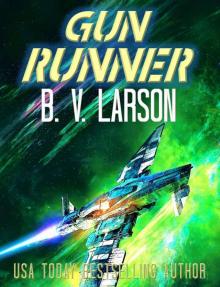 Gun Runner
Gun Runner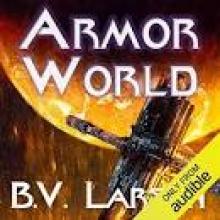 Armor World
Armor World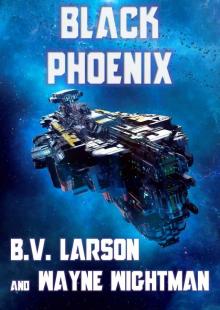 Black Phoenix
Black Phoenix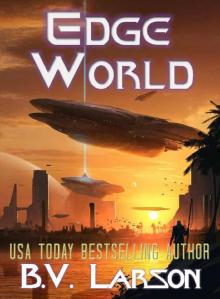 Edge World (Undying Mercenaries Series Book 14)
Edge World (Undying Mercenaries Series Book 14)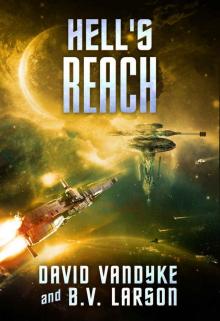 Hell's Reach (Galactic Liberation Series Book 6)
Hell's Reach (Galactic Liberation Series Book 6)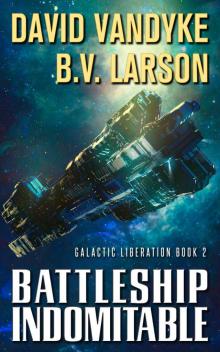 Battleship Indomitable
Battleship Indomitable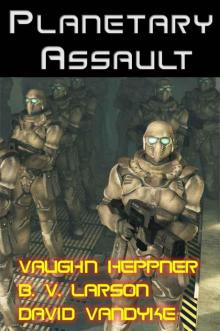 Planetary Assault (Star Force Series)
Planetary Assault (Star Force Series)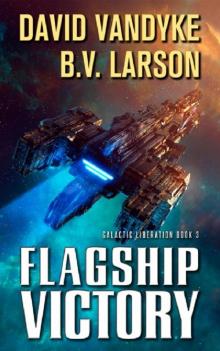 Flagship Victory (Galactic Liberation Book 3)
Flagship Victory (Galactic Liberation Book 3)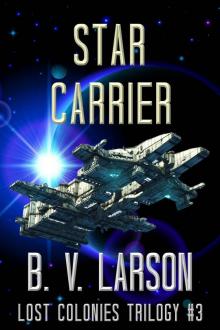 Star Carrier (Lost Colonies Trilogy Book 3)
Star Carrier (Lost Colonies Trilogy Book 3)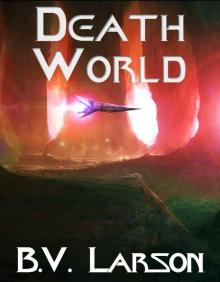 Death World (Undying Mercenaries Series Book 5)
Death World (Undying Mercenaries Series Book 5)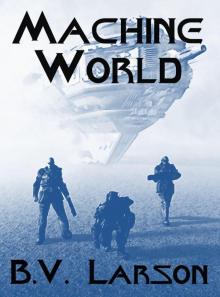 Machine World (Undying Mercenaries Book 4)
Machine World (Undying Mercenaries Book 4) Mech 2
Mech 2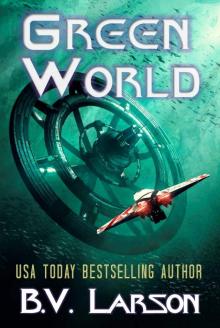 Green World
Green World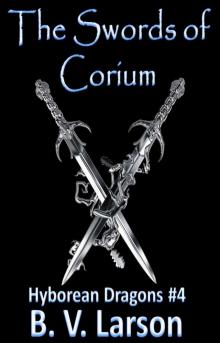 The Swords of Corium
The Swords of Corium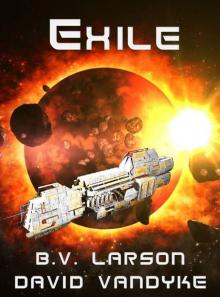 Star Force 11: Exile
Star Force 11: Exile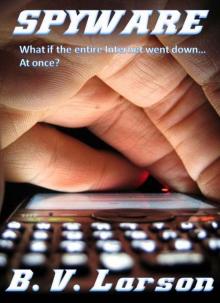 SPYWARE BOOK
SPYWARE BOOK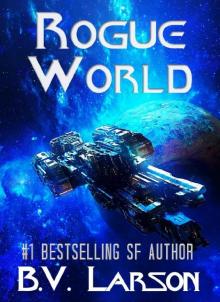 Rogue World (Undying Mercenaries Series Book 7)
Rogue World (Undying Mercenaries Series Book 7)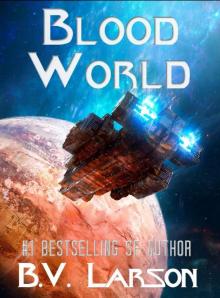 Blood World (Undying Mercenaries Series Book 8)
Blood World (Undying Mercenaries Series Book 8)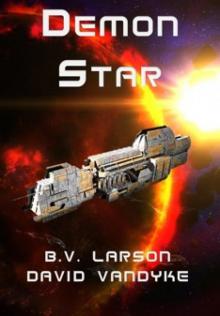 Demon Star
Demon Star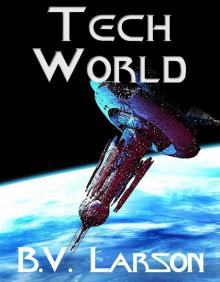 Tech World (Undying Mercenaries Series)
Tech World (Undying Mercenaries Series)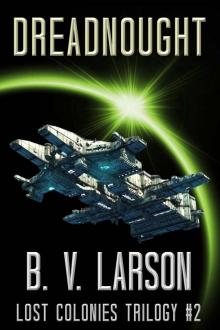 Dreadnought (Lost Colonies Trilogy Book 2)
Dreadnought (Lost Colonies Trilogy Book 2) Shifting
Shifting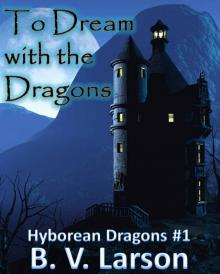 To Dream with the Dragons (Hyborean Dragons)
To Dream with the Dragons (Hyborean Dragons)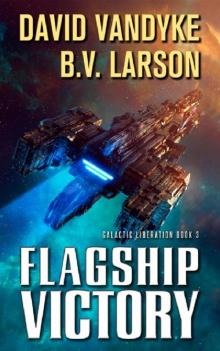 Flagship Victory
Flagship Victory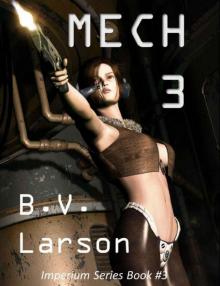 Mech 3: The Empress
Mech 3: The Empress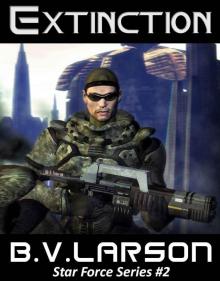 Extinction Ebook Full
Extinction Ebook Full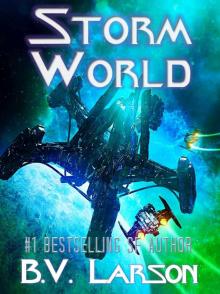 Storm World (Undying Mercenaries Series Book 10)
Storm World (Undying Mercenaries Series Book 10)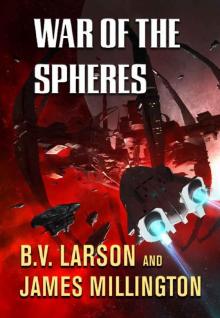 War of the Spheres
War of the Spheres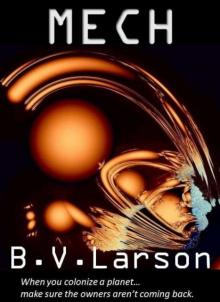 MECH EBOOK
MECH EBOOK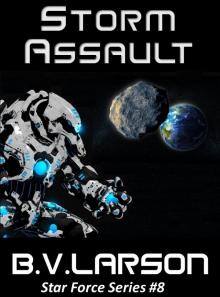 Storm Assault (Star Force Series)
Storm Assault (Star Force Series)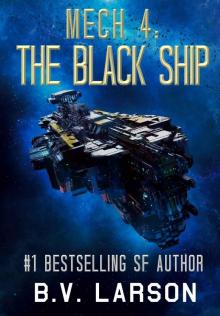 Mech 4: The Black Ship (Imperium Series Book 5)
Mech 4: The Black Ship (Imperium Series Book 5)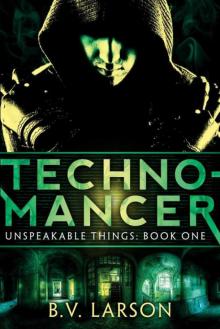 Technomancer
Technomancer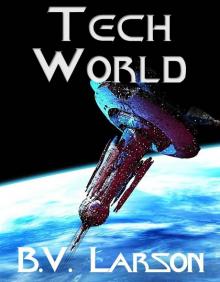 Tech World
Tech World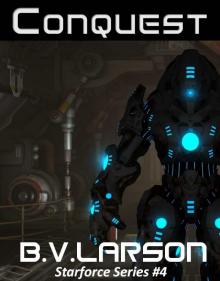 Conquest (Star Force Series)
Conquest (Star Force Series)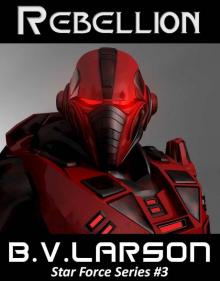 Rebellion sf-3
Rebellion sf-3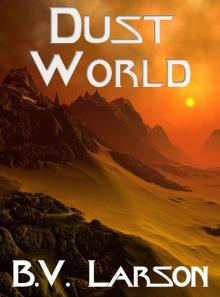 Dust World
Dust World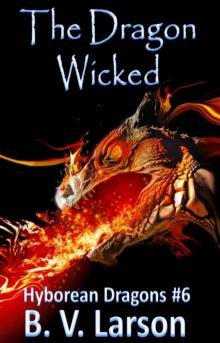 The Dragon Wicked
The Dragon Wicked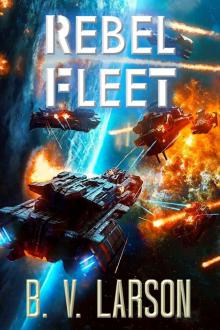 Rebel Fleet
Rebel Fleet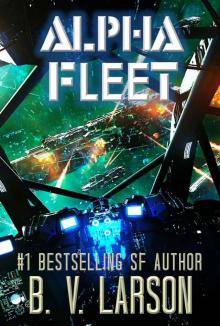 Alpha Fleet (Rebel Fleet Series Book 3)
Alpha Fleet (Rebel Fleet Series Book 3)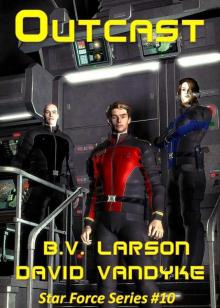 Star Force 10: Outcast
Star Force 10: Outcast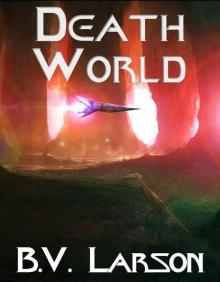 Death World
Death World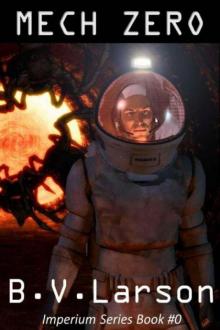 Mech Zero: The Dominant
Mech Zero: The Dominant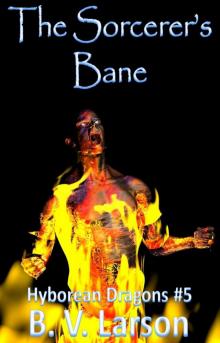 The Sorcerer's Bane
The Sorcerer's Bane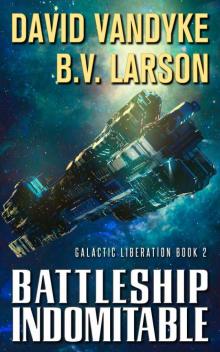 Battleship Indomitable (Galactic Liberation Book 2)
Battleship Indomitable (Galactic Liberation Book 2) Haven Magic
Haven Magic Amber Magic (Haven Series #1)
Amber Magic (Haven Series #1)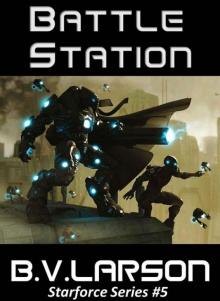 Battle Station sf-5
Battle Station sf-5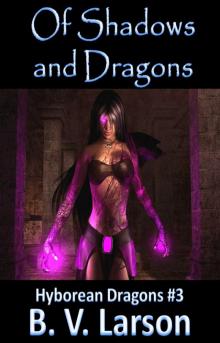 Of Shadows and Dragons
Of Shadows and Dragons Starfire
Starfire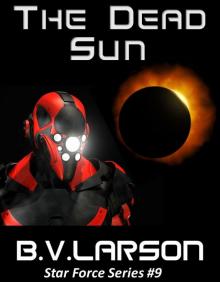 The Dead Sun (Star Force Series)
The Dead Sun (Star Force Series)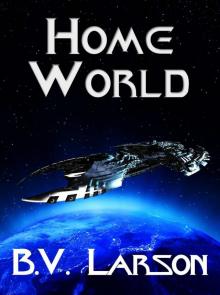 Home World (Undying Mercenaries Series Book 6)
Home World (Undying Mercenaries Series Book 6)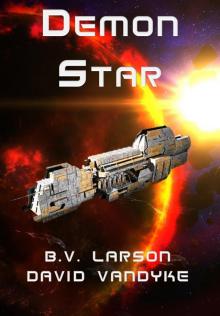 Star Force 12 Demon Star
Star Force 12 Demon Star Dream Magic
Dream Magic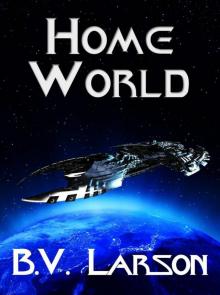 Home World
Home World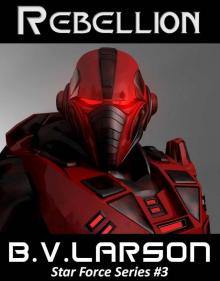 Rebellion Ebook Full
Rebellion Ebook Full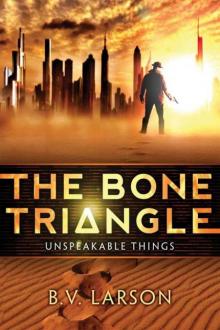 The Bone Triangle
The Bone Triangle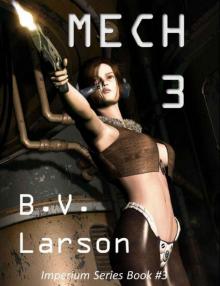 The Empress i-3
The Empress i-3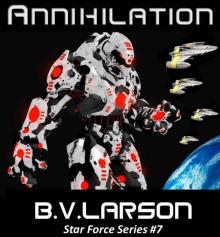 Annihilation (Star Force Series)
Annihilation (Star Force Series)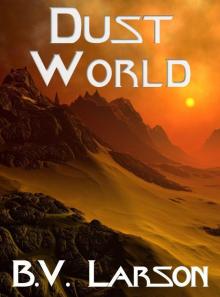 Undying Mercenaries 2: Dust World
Undying Mercenaries 2: Dust World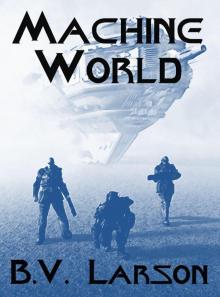 Machine World
Machine World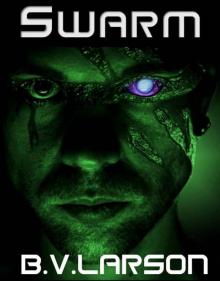 Swarm
Swarm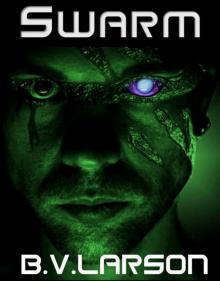 Swarm sf-1
Swarm sf-1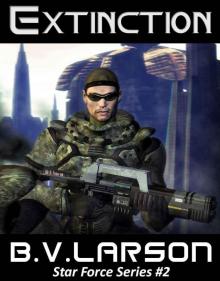 Extinction sf-2
Extinction sf-2 Amber Magic h-1
Amber Magic h-1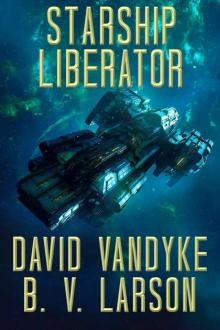 Starship Liberator
Starship Liberator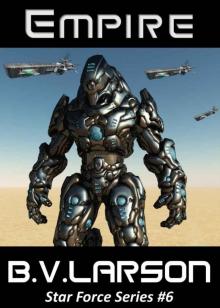 Empire Ebook Full
Empire Ebook Full The Dragon-Child
The Dragon-Child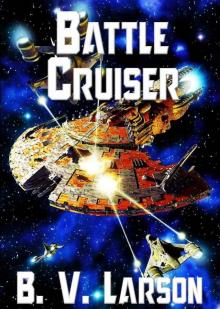 Battle Cruiser
Battle Cruiser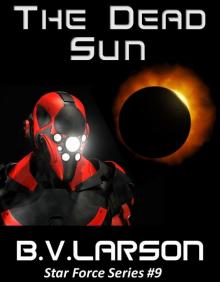 The Dead Sun
The Dead Sun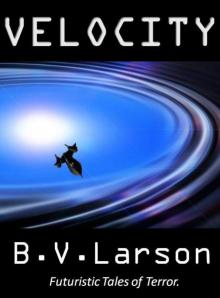 Velocity
Velocity Creatures
Creatures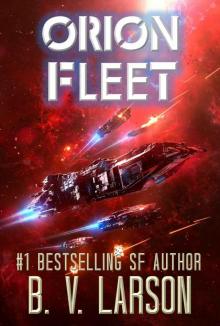 Orion Fleet (Rebel Fleet Series Book 2)
Orion Fleet (Rebel Fleet Series Book 2)